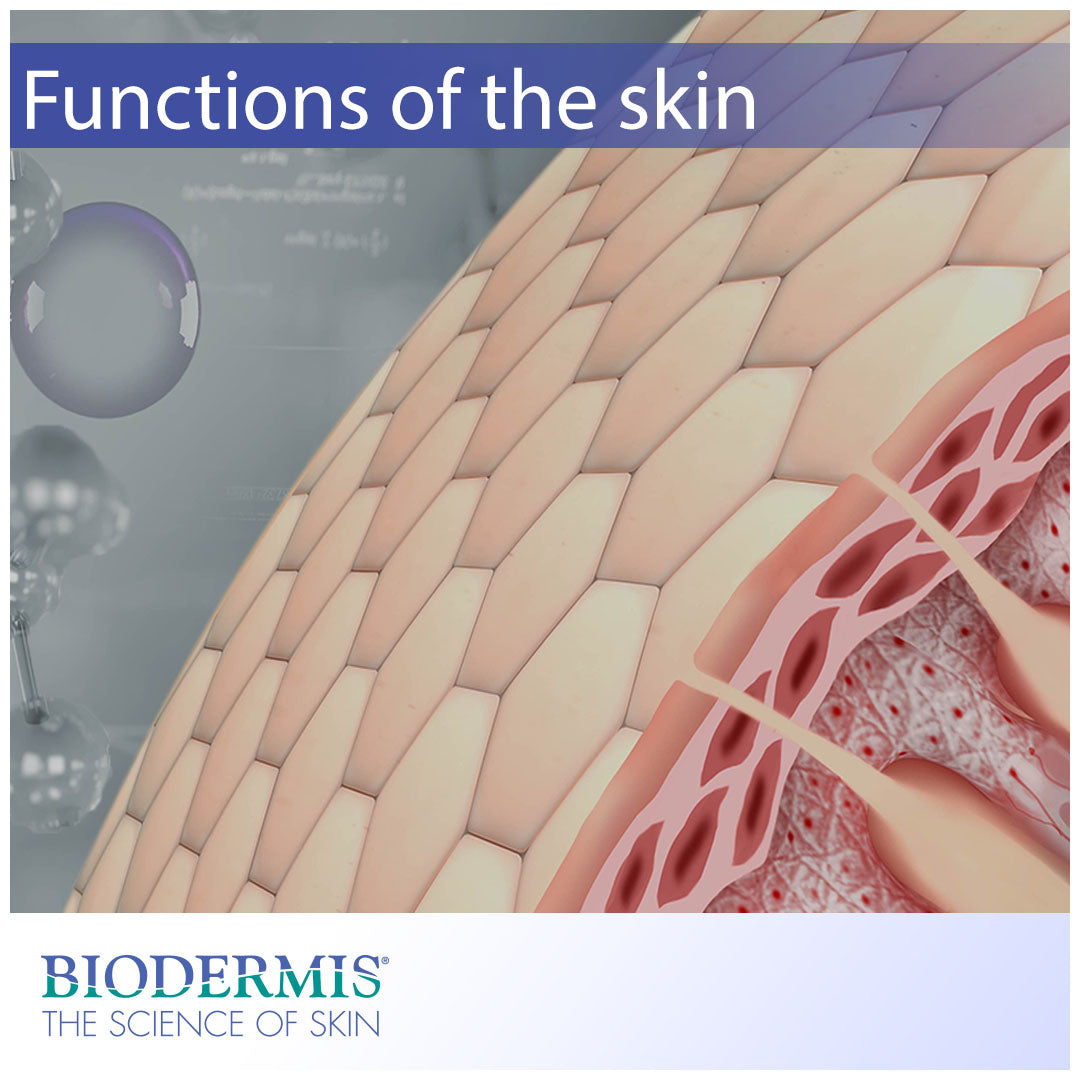Continue reading to learn more about the essential functions of the skin and why they are integral to our overall health.
Bodily protection
The epidermis, being the outermost layer of the skin, provides a barrier that protects the body from infection, environmental pathogens, and regulates transepidermal water loss. This layer of the skin also produces the skin’s pigmentation, which protects us from the cancer-causing effects of ultraviolet (UV) radiation. You can also find the oil glands in this layer, which produce the sebum that keeps our skin from drying out and cracking. The bottom layer of the skin, known as subcutaneous fat, provides a layer of protection against trauma and serves as a fat storage that produces energy. Lastly, the skin is responsible for wound healing, which consists of a intricate and dynamic process involving millions of different cells.Heat regulation
Our bodies need to maintain a healthy body temperature of about 98.6°F (37°C) to function optimally, anything higher could mean that you’re sick. The skin regulates our body temperature to adjust for changes in our environment. For instance, if we get too hot, our bodies will perspire by secreting moisture through glands known as sudoriferous (sweat) glands. This evaporation of perspiration has a cooling effect on the body. Our skin also contains capillaries, which expand to reduce body surface heat or constrict to preserve heat.
Excretion of waste products
When the body perspires via apocrine sweat glands in the skin, it also secretes salts, cellular waste, and fatty substances. When these waste products reach the surface of the skin, they mix with bacteria and create body odor. Sweat glands also release pheromones, which are hormones that play a role in sexually attracting a mate. Our skin also contains eccrine sweat glands, which are mostly located in the forehead, palms of the hands, and soles of the feet. These glands secrete water, nitrogen, and other water-soluble bi-products.
Sensation
We learn about the five sense in grade school, and the skin is responsible for one of the most important ones—touch. There are about 1,000 nerve endings per square inch of the skin. When we feel pain, heat/cold, pleasure, or pressure, the nerves in our skin send signals to the brain, letting us know about the sensation. Our sensation of touch is vitally important to our survival as a species because it allows us to know if and when we are in danger.
Absorption
At the microscopic level, the skin is porous. For this reason, there are many topical creams and ointments that penetrate the surface of the skin. Many topical treatments prescribed by a dermatologist, for instance, may be fine enough for the medicine to enter the bloodstream via pores in the skin. Another important aspect of skin absorption occurs when our bodies produce vitamin D due to sunlight reaching the skin’s surface. Vitamin D is a crucial nutrient that helps regulate calcium and phosphate in the body, keeping our bones and muscles strong.
Biodermis is an innovative market leader with 30 years of expertise in the medical silicone industry. Visit Biodermis.com today to explore a complete range of scar management and post-operative care solutions.
PHYSICIANS AND MEDICAL PROFESSIONALS: REFER OR RESELL?
Biodermis offers custom tailored referral programs designed to simplify and reduce the cost of your patients' post-op care. Additionally, we offer professional pricing if you opt to retail our products. Give us a call at 800.322.3729, and we will be happy to provide additional details on these programs.





